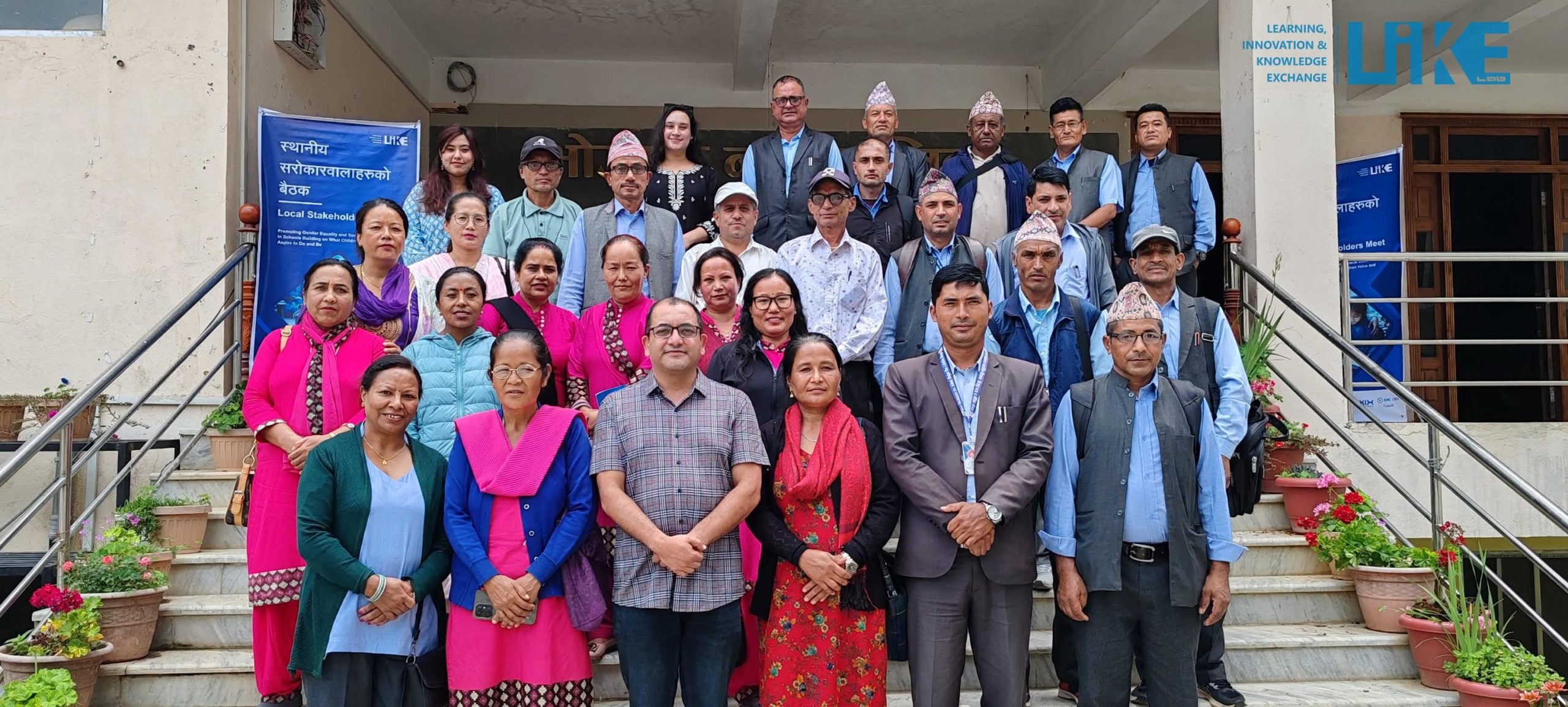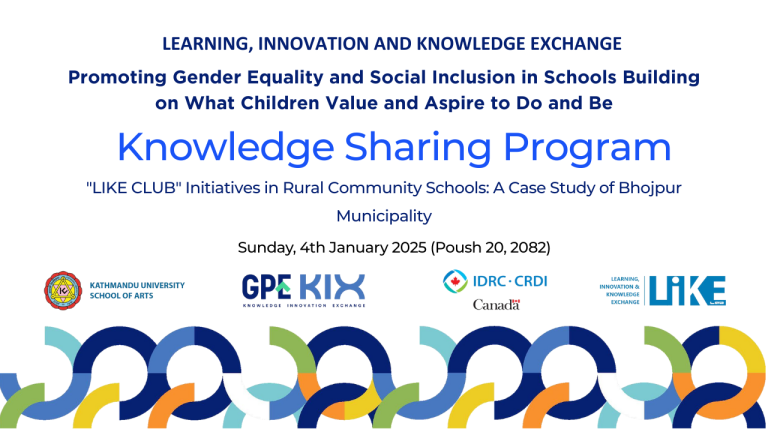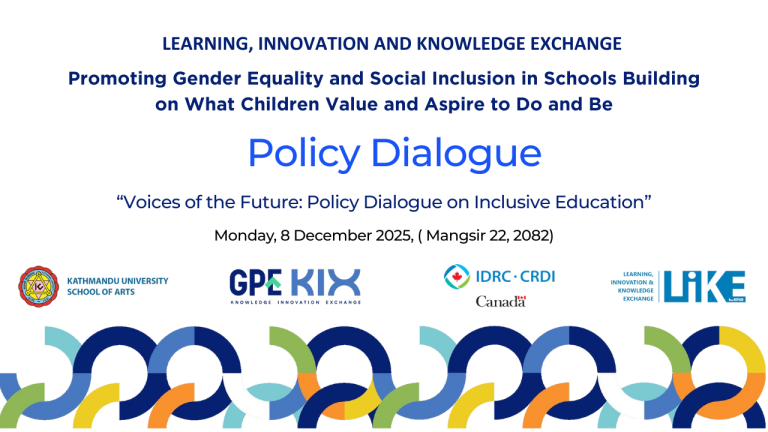
BHOJPUR, NEPAL, JULY 28th, 2025 – The Learning, Innovation and Knowledge Exchange (LIKE) Lab at Kathmandu University School of Arts organized a community-level event under the “Promoting Gender Equality and Social Inclusion in Schools: Building on What Children Value and Aspire to Do and Be (CVEC Project)”. Held at the Assembly Hall of Bhojpur Municipality, the session convened stakeholders, including municipal officials, educators, and community representatives, to build momentum around student-led participation through LIKE Clubs.
The CVEC Community Campaign at the Community Level aimed to institutionalize LIKE Clubs in schools and foster a foundation for future scaling and sustainability. The program introduced participatory tools such as the LIKE Club Activity Book, evaluation mechanisms, and school-level documentation processes grounded in the Capability Approach.
The event commenced with Ms. Mijala Chitrakar contextualizing the CVEC Project within LIKE Lab’s broader mission of creating gender-responsive and socially inclusive education systems.
Key highlights from her presentation included:
- Overview of the CVEC project’s participatory foundation and cross-country scope (Nepal, Bhutan, and Bangladesh).
- Introduction to the Capability Approach as a guiding theoretical framework.
- Explanation of the 16 child-identified capabilities central to the project’s design.
- A roadmap of CVEC’s milestones, implementation phases, and expected outcomes.
Research Presentation and Tools
Ms. Isha Karki and Mr. Saurav Rajbhandari delivered an in-depth walkthrough of the project’s participatory methodology and practical tools used at the school level. Key features presented included:
- Vision, Mission, and Objectives of LIKE Clubs:
- Mission: Promote gender equality and social inclusion in schools.
- Vision: Create inclusive, safe, and empowered learning spaces.
- Objectives: Foster child participation, confidence, kindness, and inclusive leadership.
- Club Structure and Operations:
- Student-led roles such as president, secretary, and domain coordinators.
- Emphasis on inclusive membership across gender, ability, and grade levels.
- Guidelines for decision-making, regular meetings, and documentation.
- Activity Book and Planning Toolkit:
- Mapping each activity to one or more of the 16 Children’s Valued Educational Capabilities.
- Annual timeline for planning, monitoring, and evaluating LIKE Club interventions.
- Focus on GESI, mental well-being, and participatory leadership.
Remarks by Municipal Leadership
Mayor Kailash Kumar Ale expressed strong institutional support for the CVEC initiative and emphasized its role in addressing long-standing challenges in Bhojpur’s education system.
Key messages from his remarks included:
- The CVEC Project aligns with the municipality’s commitment to holistic education and inclusive governance.
- Student and teacher attendance continues to be a challenge—LIKE Clubs may serve as a motivational intervention.
- The 13 participating schools have already reported encouraging outcomes linked to CVEC activities.
- Municipal leadership stands committed to full ownership and accountability in collaboration with the LIKE Lab team.
Closing Reflections
Dr. Binayak Krishna Thapa, the Principal Investigator of the CVEC Project, concluded the session by emphasizing the importance of participatory, child-led, and life-long learning approaches in education reform. He acknowledged the continued support of the Bhojpur Municipality, especially the Mayor, Chief Administrative Officer, and Education Officer, for their collaborative leadership.



